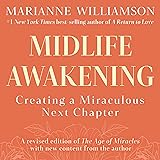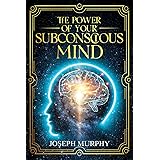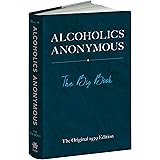The profound wisdom embedded within the Quran is a boundless ocean, offering guidance and illumination to those who seek it sincerely. As beautifully elaborated in the accompanying video, the verses of Surah Baqarah, particularly Ayatul Kursi, present an extraordinary tapestry of divine attributes, spiritual insights, and practical lessons for daily life. While many Muslims recite Ayatul Kursi for protection, its deeper meanings often remain unexplored. This article seeks to delve into the rich layers of these verses, expanding upon the video’s discourse to illuminate how a comprehensive understanding of Allah’s majesty can transform our approach to faith, charity, and parenting.
Often, a reluctance to engage fully with the divine message stems from a superficial understanding, leading to misconceptions about core Islamic principles. For instance, the act of spending in Allah’s way might be viewed as a burden or a mere request, rather than a profound honor bestowed upon the believer. Similarly, the powerful declaration of “no compulsion in religion” (La Ikraha fid-Din) is frequently misunderstood, leading to laxity in religious observance rather than a firm adherence to truth once accepted. By exploring these topics with careful deliberation, a clearer path towards spiritual growth and unwavering faith can be established.
The Majesty of Ayatul Kursi: A Pillar of Tawheed
1. The essence of Allah’s greatness is perhaps most eloquently encapsulated in Ayatul Kursi, which is Ayah 255 of Surah Baqarah. This single verse is often described as the ‘peak’ of the Surah, containing an astonishing eleven proofs of divine oneness (Tawheed-e-Ilahi) within its structure. It is also observed that at least ten distinct sentences form this powerful verse, underscoring its comprehensive nature. Furthermore, approximately twenty-five names and attributes of Allah Subhanahu wa Ta’ala are said to be mentioned or alluded to, making it a condensed manual of theology.
The verse commences with the declaration: “Allahu la ilaha illa Huwal Hayyul Qayyum.” Here, Allah is introduced as “The Living, The Sustainer of all existence.” This is not merely an assertion of life, but of an eternal, self-subsisting life that gives life to all else. The concept of Al-Qayyum signifies that Allah stands firm and maintains everything; the entire cosmos is dependent upon Him. When considering the vastness of the universe, with its billions of galaxies, each star and planet maintained in perfect orbit, the sheer magnitude of this divine attribute begins to be apprehended. Neither slumber nor sleep overtakes Him; His vigilance is constant and absolute, overseeing every detail of creation.
When such a magnificent reality is contemplated, the human heart naturally inclines towards love and reverence. It is often questioned what small sacrifices could be made for such a Majestic Being. The suggestion that reducing one’s sleep slightly for prayer, or dedicating more time to reflection, is not a ‘big deal’ becomes understandable when compared to Allah’s tireless sustenance of all existence. Our minor efforts are simply drops in an ocean of divine munificence, yet they are deeply cherished and magnified by Him.
The True Essence of Spending in Allah’s Way
2. The discussion on giving in Allah’s path (Infaq) often evokes a sense of reluctance or misunderstanding, with some individuals perceiving it as an act of begging by religious institutions. However, the Quran presents this act not as a burden, but as a profound opportunity and an honor bestowed by the King of all kings. Allah, who is the Malik-ul-Mulk (Owner of All Sovereignty) and the ultimate provider, does not *need* our wealth. Instead, He extends an invitation to us to participate in His divine economy, thereby elevating our status and purifying our souls.
The act of giving in Islam is often likened to an investment in the Hereafter, an enduring asset unlike any worldly possession. Consider the analogy of property values: a magnificent mansion in a remote village might fetch a high price locally, but its value diminishes drastically if one attempts to sell it in a bustling metropolis like Paris or Tokyo. Similarly, the Prophet Muhammad (PBUH) taught that a space in Paradise equivalent to a whip is better than the entire world and all that it contains. This underscores the ephemeral nature of worldly wealth compared to the everlasting rewards of the divine.
Unlike earthly investments that come with ongoing development charges, electricity bills, and installment payments, giving in Allah’s way offers a unique return. When something is invested in the path of Allah, it is typically followed by more opportunities for good deeds and, quite often, spiritual trials. These trials are not punitive but are a means of purification and elevation, a testament to the sincere transaction made with the Divine. The story of Abu Dahda (RA), who traded his valuable garden for a single date palm in Paradise, exemplifies this profound understanding of investing for the eternal.
Unpacking “No Compulsion in Faith”: Clarifying La Ikraha fid-Din
3. One of the most frequently quoted, and often misapplied, verses is “La ikraha fid-dini qad tabayyanar-rushdu minal-ghayy” (There shall be no compulsion in [acceptance of] the religion. The right course has become clear from the wrong course). This verse is commonly misused as an excuse to disregard Islamic injunctions, such as prayer, modesty, or avoiding usury. However, its profound meaning is often missed due to a lack of understanding regarding its historical context and broader implications.
The video clarifies that this verse was revealed in a specific historical context, concerning the Aws and Khazraj tribes in Madinah. Before Islam, some parents from these tribes had raised their children as Jews, as it was a dominant religion of that era. When these parents later embraced Islam, they wished to forcibly convert their Jewish children. It was in this situation that the verse was revealed, making it clear that no one can be forced to accept Islam as their religion. History indeed bears witness that Muslim rulers, even after conquering vast lands, never compelled people to convert at gunpoint or through coercion.
It is important to differentiate between compelling someone to enter Islam and adhering to its laws once one has voluntarily embraced it. Just as one chooses to live in a country and subsequently accepts its laws and regulations, so too does a Muslim, upon accepting Islam, commit to following its divine principles. It would be considered a poor citizen who disregards the laws of their chosen country; similarly, a believer is expected to uphold the tenets of their faith. The restrictions and disciplines within Islam are not ‘extremism’ but are seen as perfection and a path to inner peace and societal harmony, leading from darkness to light.
Embracing the “Most Trustworthy Handhold” (Urwat al-Wuthqa)
4. The verse following “La ikraha fid-din” speaks of rejecting Taghut (false deities, evil influences, or anything worshipped other than Allah) and believing in Allah, thereby grasping “the most trustworthy handhold that will never break.” This concept of ‘Urwat al-Wuthqa provides a powerful metaphor for true faith and reliance on Allah. Our religion, Islam, begins with “La ilaha illa Allah” – a declaration that necessitates the rejection of all false gods and ideologies before affirming the absolute Oneness of Allah.
The speaker vividly illustrates this with the image of a person falling from a mountain, saved by grasping a strong rope, or a child in a swimming pool securing themselves within a safety ring. This ‘Urwat al-Wuthqa represents Allah’s support, His piety, and the strong faith within a heart filled with His love and fear. Such an individual, even if pushed into an ocean of misguidance, possesses the resilience and divine aid to navigate through and emerge safely. Allah Himself is the Protector of the believers, guiding them from various forms of darkness into the radiant light of truth and certainty.
Rejecting Taghut means rejecting all systems, ideologies, and desires that contravene divine guidance, whether they manifest as idol worship, oppressive political systems, or even one’s own ego. It signifies a complete surrender to Allah’s will. This commitment brings with it an unparalleled sense of security and peace, knowing that one’s ultimate refuge is with the All-Hearing, All-Knowing Lord of the Worlds. It is a profound declaration of allegiance, signifying that worldly concerns and human opinions are secondary to the pleasure of the Creator.
Enduring Wisdom from Prophetic Narratives
5. The Quran often narrates stories of prophets to impart timeless lessons, and the subsequent verses (258-259) of Surah Baqarah are no exception, presenting the narratives of Prophet Ibrahim (AS) and Prophet Uzair (AS).
5.1 Ibrahim (AS) vs. Nimrud: The Power of Intellectual Jihad
The first incident recounts Prophet Ibrahim’s debate with Nimrud, a king who claimed divinity, much like Pharaoh. When Ibrahim asserted that his Lord gave life and caused death, Nimrud, in his arrogance, claimed the same power. He then attempted to demonstrate this by releasing a prisoner condemned to death and executing an innocent one. However, Ibrahim’s subsequent challenge – asking Nimrud to bring the sun from the west, since Allah brings it from the east – utterly confounded the disbeliever. Nimrud’s reaction, a stunned silence, revealed the inadequacy of his false claims.
This episode is a powerful example of ‘intellectual jihad,’ a scholarly and reasoned struggle in the path of Allah. It teaches that when confronted with arguments against Islam, believers should not react with anger, which often stems from a lack of knowledge. Instead, a strong foundation of Islamic knowledge enables one to present compelling arguments and defend the truth with wisdom and composure. Nimrud, despite understanding the truth of Ibrahim’s Lord, refused to accept it due to arrogance and pride. This highlights a crucial point: intellectual understanding is insufficient without humility and an open heart.
5.2 Uzair (AS) and the Revival of Hope
The second incident involves Prophet Uzair (AS), a scholar of the Torah, who passed by a destroyed village, likely Jerusalem, after its devastation. Pondering how Allah could bring such desolation back to life, Allah caused him to die for a hundred years, then resurrected him. Upon awakening, he was asked how long he had remained there, to which he replied, “A day or part of a day.” He was then informed he had been dead for a century, yet his food and drink remained unspoiled, while his donkey had completely decayed to bones, which Allah then visibly reassembled and clothed with flesh.
This miraculous event served as a sign for humanity and taught Uzair (AS) a profound lesson about Allah’s absolute power over life and death, and His ability to revive anything, no matter how utterly destroyed it seems. This narrative provides solace and hope for believers who might despair over the current state of the Muslim Ummah or their own nations. Just as Allah revived a dead village and a decomposed donkey, He possesses the power to revive morally and physically degraded communities. It emphasizes that what is truly needed is sincere prayer, a deep understanding of Islam, and concerted efforts to instill the love of Allah and His Messenger in the hearts of the next generation.
Cultivating a Generation of Faith and Purpose
The concern for children’s upbringing in challenging environments is a recurrent theme in Muslim communities. The story shared in the video, of a mother worried about her children going astray in a foreign land, resonates deeply. The scholar’s comforting response, emphasizing the impact of a mother’s dedicated care and a father’s lawful provision, highlights fundamental principles. A mother’s steadfast efforts to nurture faith, exemplified by waking children for Fajr prayers and taking them to the mosque, creates an environment where children are less likely to deviate, regardless of external temptations.
The examples of Prophet Ibrahim (AS) growing up in an idol-worshipping household and Prophet Musa (AS) being raised in Pharaoh’s palace despite the prevailing idolatry serve as powerful metaphors. They illustrate that divine protection is granted when parents fulfill their responsibilities with sincerity and reliance on Allah. The spiritual ‘milk’ of a believing mother and the ‘lawful provision’ of a dedicated father are critical factors in shielding children from destructive influences. Children tend to go astray when they are left to the whims of society and deprived of strong spiritual anchors.
To cultivate a generation of purpose and faith, it is imperative to provide them with these “strong bonds” – a deep understanding of Allah’s love, obedience to the Prophet (PBUH), and unwavering certainty in the Hereafter. As the speaker passionately suggests, a five-year plan focused on instilling these values in every child could transform a nation. May Allah illuminate the future of the Muslim Ummah, protect our children and generations from ignorance and trials, and grant us knowledge and understanding, as was prayed: “O Allah, the Lord of Abraham, grant me knowledge, and O teacher of Sulaiman, grant me understanding.” This profound journey into the heart of Ayatul Kursi and its surrounding verses ultimately reinforces the notion that true contentment and success are found in wholeheartedly seeking the pleasure of Allah, with joy and certainty in our hearts, much like a beautiful garden yielding its fruits.








